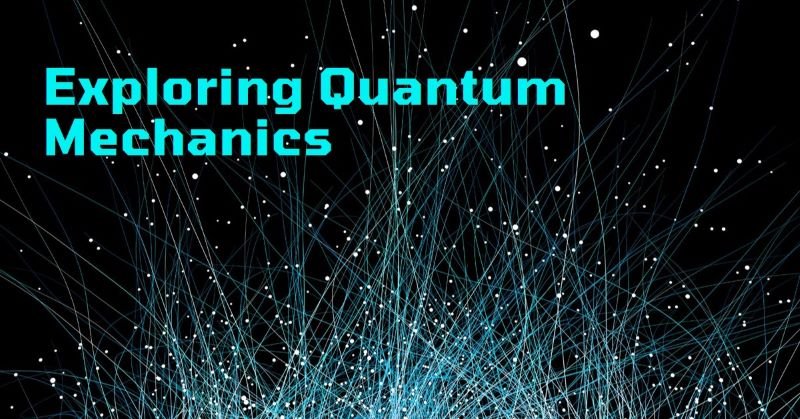Quantum Superposition and Entanglement
Welcome to our blog post on the fascinating topics of quantum superposition and entanglement. In this article, we will explore these concepts and their implications in the field of quantum physics. So, let’s dive right in!
What is Quantum Superposition?
Quantum superposition is a fundamental principle in quantum mechanics that allows particles to exist in multiple states simultaneously. Unlike classical physics, where an object can only be in one state at a time, quantum superposition allows particles to be in a combination of different states.
For example, imagine a particle that can be either in a spin-up state or a spin-down state. In classical physics, the particle would be in one of these states at any given time. However, in quantum superposition, the particle can be in both states simultaneously, represented as a combination of spin-up and spin-down.
This concept of superposition is often illustrated using the famous thought experiment of Schrödinger’s cat. According to this experiment, a cat can be both alive and dead at the same time, until an observation is made to determine its state.
Exploring Entanglement
Entanglement is another intriguing phenomenon in quantum physics. It occurs when two or more particles become correlated in such a way that the state of one particle is dependent on the state of the other, regardless of the distance between them.
Let’s consider an example to understand entanglement better. Imagine two entangled particles, A and B. When particle A is measured and found to be in a specific state, particle B instantaneously assumes the opposite state, even if it is located light-years away.
This instantaneous correlation between entangled particles, regardless of their spatial separation, has puzzled physicists for decades. It suggests the existence of a deeper connection between particles that goes beyond our classical understanding of cause and effect.
Applications of Quantum Superposition and Entanglement
Quantum superposition and entanglement have profound implications for various fields, including computing, cryptography, and communication.
One of the most promising applications is in the field of quantum computing. Quantum computers leverage the power of superposition and entanglement to perform complex calculations exponentially faster than classical computers. This has the potential to revolutionize fields such as drug discovery, optimization problems, and cryptography.
Quantum entanglement also plays a crucial role in quantum cryptography. By using entangled particles, it is possible to create secure communication channels that are inherently protected against eavesdropping. This could have significant implications for secure communication in the future.
Challenges and Future Directions
While the concepts of quantum superposition and entanglement hold great promise, there are still many challenges to overcome before we can fully harness their power.
One of the major challenges is maintaining the delicate quantum states without being disrupted by the environment. Even the slightest interaction with the surroundings can cause the quantum system to collapse, leading to errors in calculations or loss of entanglement.
Another challenge is scaling up quantum systems to a larger number of qubits (quantum bits). Currently, quantum computers with a few dozen qubits exist, but to achieve practical applications, we need to build much larger and more stable quantum systems.
Despite these challenges, researchers and scientists are actively working towards overcoming these obstacles and unlocking the full potential of quantum superposition and entanglement.
Conclusion
Quantum superposition and entanglement are fascinating concepts that defy our classical understanding of the physical world. They open up new possibilities in computing, communication, and cryptography. While there are still challenges to overcome, the future of quantum technologies looks promising.
